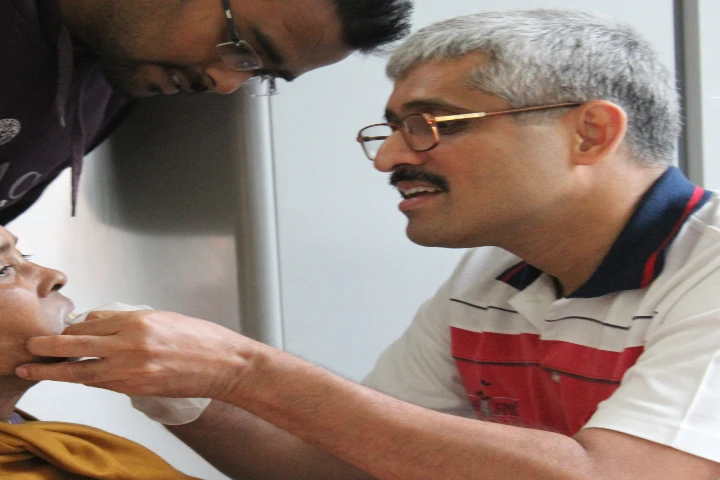Even while talking on the phone with R. Ravi Kannan, India’s leading oncologist who has been bestowed with the prestigious Ramon Magsaysay Award for 2023, one can perceive his self-effacing nature and humility. In an interview with India Narrative, the Director of Cachar Cancer Hospital and Research Centre in Silchar insisted that the award was not just for him alone but for his staff, associates and all those who made the hospital what it is today.
Yet, this man of quiet demeanour has tremendous passion to fight against the scourge of humanity – cancer – and has novel and inventive ideas to counter it. He insists that the fight against cancer is not just Government responsibility and that it requires public-private partnership. To ensure prohibitive treatment costs don’t hinder healthcare facilities, he suggests coming together of all State Governments along with the Central to negotiate with pharmaceutical companies and manufacturers of medical equipment to get the best possible prices.
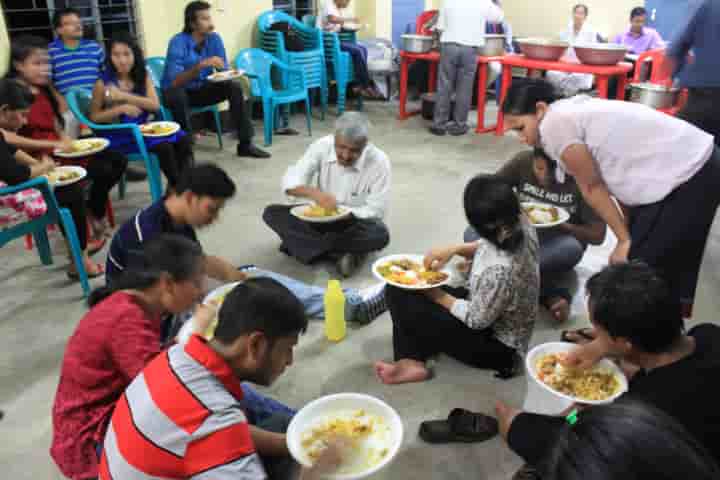
Dr. Kannan completed his MBBS Chennai’s Kilpauk Medical College; his Master of Surgery from New Delhi’s Maulana Azad Medical College, New Delhi and a Master of Chirurgie, an M. Ch., a super-speciality in Surgical Oncology from Cancer Institute (WIA) in Adyar, Chennai. He served in various positions in Cancer Institute before moving to CCHRC. Among several awards bestowed on him, he is the recipient of Padma Shri in 2020.
In an interview with India Narrative, Dr. Kannan talks about how to tackle increasing incidence of cancer in India, the importance of awareness, and how he became an oncologist.
Excerpts from the interview:
How do recognitions like the Padma Shri and Magsaysay Award motivate you?
All these recognitions and awards are not for or about me as an individual. I share them with my colleagues, members of my society who started CCHRC, members of the community, civil society, local administrations, Government and non-Government agencies.
The Magsaysay Award is being celebrated not just by the hospital and its 450 staff but by everyone in the area.
Such awards recognise that spirit in human beings to help others and empathise with the needy and motivates everyone, including me, to continue and do better.
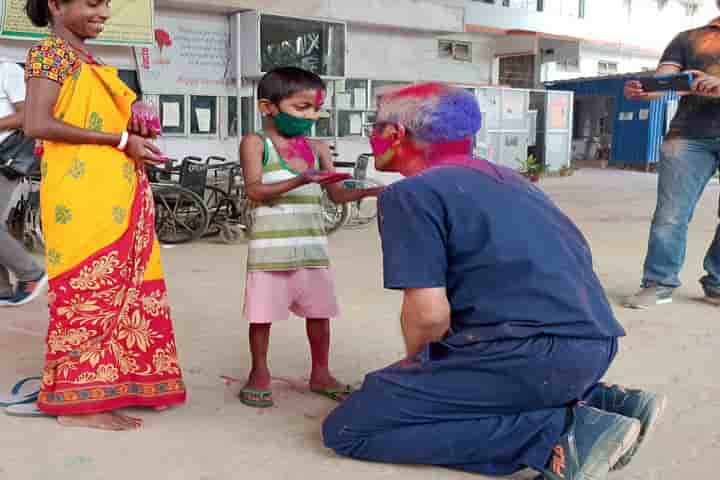
With cancer cases increasing, what needs to be done to prevent it? Also how vital is the role of spreading awareness about this disease?
For cancer the adage prevention is better than cure is very apt. Its causes are multiple – smoking, eating areca nut, consuming alcohol, dietary habits, pollution, and lack of physical activity – all these can be controlled. While awareness and legislation has decreased smoking in some places, yet in other areas it is going up. On the other hand, chewing of tobacco is not monitored. Drinking of liquor is touching new heights and so are changes in our diet as we are giving up traditional, healthy Indian diet which is balanced, has a mix of vegetables, pulses, rotis, rice, beneficial herbs and spices, turmeric. Instead, we are eating fast food — high on both carbohydrates and cholesterol.
Sedentary habits and constant addiction to screens – laptops, mobiles, tablets, and TV – are all affecting us.
All these factors can be controlled to check and prevent cancer.
Apart from this awareness and education about cancer is very vital to combat it. Campaigns and dissemination of information is a highly-effective and low-cost method to check cancer. Using social, audio, visual, print and all other forms of media we need to inform people about this disease, its cause, how to prevent it, how to detect it on their own and early; and most importantly what to do after detection. Screening everybody is not possible but informing them is.
Early detection increases the chance of recovery manifold – more than 90 per cent. Once found, people tend to ignore it. For example, a person who gets oral cancer can feel it as the tongue keeps touching the ulcer. Yet they don’t bother and turn up for medical help when the problem has magnified several times and at times a hole has developed in the mouth.
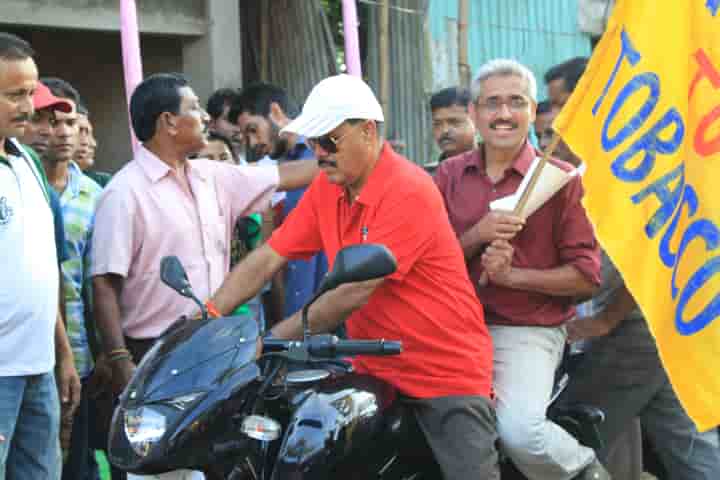
Procrastination and ignorance are two reasons but one more reason for patients to avoid doctors is that they are afraid of the medical cost and battery of tests that are very expensive. Again, we need to tell them there are several not-for-profit organisations and Government agencies that help in getting treatment for a nominal cost or even free.
For spreading awareness, teachers, students, youth, health workers, and Accredited Social Health Activist workers should be roped in. ASHA personnel work at the ground level and are quick to grasp techniques and methods.
What is the way forward to bring down cancer detection and treatment cost?
Both cost of detection and treatment don’t have to be prohibitive. India has a solid base in the pharma sector and we are producing several generic drugs for treatment. Secondly, there is a big difference between the cost price of drugs and their MRP. Central and State Governments can step in to buy in bulk thereby availing huge discounts and providing them to patients after charging a nominal administrative cost. In CCHRC we negotiate with sellers to buy medicines in bulk and provide to our patients at a reasonable rate.
Each State should do the same and it would be even better and effective if all the States and Union Territories along with Centre are able to keep their political differences aside to negotiate with drug companies and medical instrument manufacturers to get the best possible rates.
Likewise, National Cancer Grid which is a network of major cancer centres, research institutes, patient groups and charitable institutions across India and has more than 300 members, also buys chemotherapy in bulk.
In India new machines and technologies are being developed which are effective and affordable. For example, the Telecobalt machines used to treat cancer in our country are indigenously made, cost less and their maintenance is also low.
Considering India’s size and its population. healthcare cannot be driven by profit. It needs to be people-oriented.
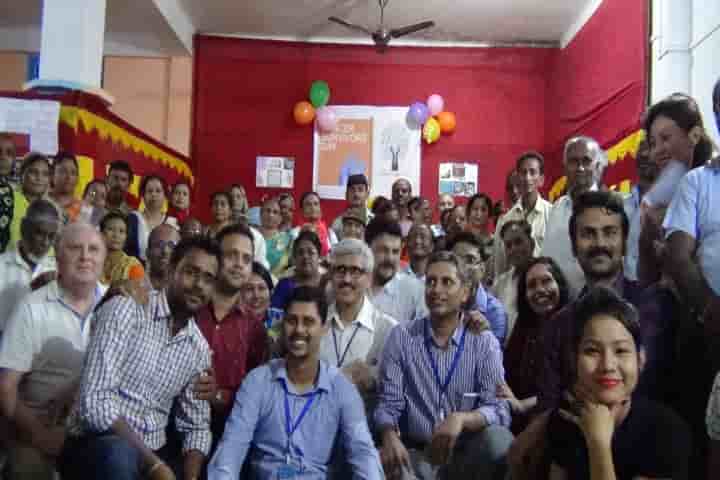
How important is research and development in making new treatments available for cancer?
Research in the field of drugs, medicines, therapies and treatments is a must. Of course, quality research is very expensive and a lot of funds are required for setting up state-of-the-art laboratories, hiring the right people and giving them ample time to work. Even after many years, there may be no result, yet we can’t stop. Without basic research we can’t build the edifice of application in any field.
While there are some excellent Government-run research institutions, the private sector must come forward and invest in R&D. For this, they must be provided incentives. We have enough talent and with ample opportunities, India can emerge as a leader in medical research and designing of medical instruments. Local research will also bring down the cost of treatment.
Share with our readers how you chose to become a doctor and why you specialise in cancer?
It was my mother, Indumati, who motivated me to become a doctor. She herself was keen to become one as she was greatly impressed by her family doctors in Kumbakonam but due to economic compulsions she couldn’t. As for me, I was only wedded to becoming a doctor and I had no other thought.
As to choosing to become an oncologist, when I started as a resident doctor most surgeries were connected with cancer. Cancer surgeries are very challenging and that is what fascinated me.
How do you prepare yourself for such major surgeries?
In the beginning, I used to get butterflies in my stomach but over a period of time I developed confidence. You slowly realise that you can only give your best shot and you don’t control the outcome and it is best to leave it to God or to Fate. Surgeons must prepare well, be careful, meticulous and gentle. They need to be calm and also assure the patient before the operation.
In our Centre we discuss all cases before going to the theatre and also do audits for both successful and failed cases. From the former we learn what went right and from the latter what went wrong.
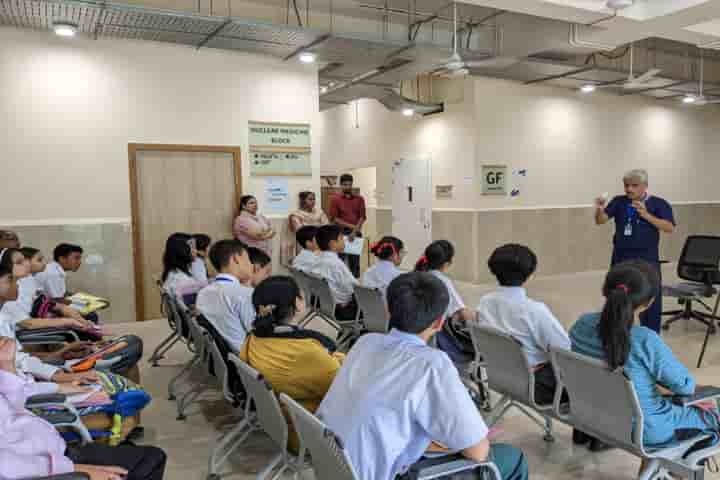
How different and difficult was it working in Assam as compared to the Adyar Institute?
The Adyar Institute was on top of the pyramid. It had everything from medical experts, equipment, staff and facilities. In Cachar Centre when I started it was virtually at the bottom of the pyramid. The challenges were manifold. Short of resources, staff, supplies, equipment, transport, we had to virtually do fire-fighting every day. For me it has been a great learning experience not just in terms of medical treatment but also in terms of how to head an institution, make use of human resources, and deal with novel problems.
Also read: Meet Dr. Ravi Kannan, winner of Magsaysay Award for his work on cancer treatment






